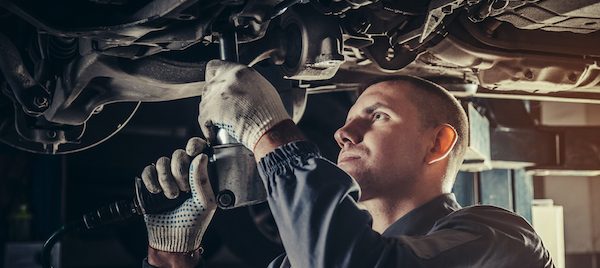What’s Wrong With My Car? Diagnosing Common Problems

Many or all of the products featured here are from our partners who compensate us. This influences which products we write about and where and how the product appears on a page. However, this does not influence our evaluations. Our opinions are our own. Here is a list of our partners and here's how we make money.
If your car is vibrating, making noises or emitting odors, you'll probably be seeing a mechanic soon. But before you do, a few minutes of troubleshooting on your own will help you talk to your mechanic and budget for the repair cost.
We have suggestions for how to proceed if:
» SIGN UP: See your car's value and manage expenses
Your car smells like gas
Sometimes a gas smell isn’t a harbinger of costly repairs. Assuming the odor isn't simply from your last stop at the gas station, it could be a loose or broken gas cap. A common culprit, gas caps are cheap to replace.
If the odor persists and it isn’t a faulty gas cap, it could be a more serious, and potentially dangerous, problem with your fuel system, like:
Fuel tank leak, often accompanied by a rainbow puddle under your car
Fuel injector, line or filter leak
A faulty component of your car’s evaporative emissions (EVAP) system, often accompanied by a check engine light
Want to refinance your auto loan? See if you pre-qualify.
Just answer a few questions to get personalized results from our lending partners.
on NerdWallet
Your car shakes, pulsates or vibrates
After your car gets some miles on it, you notice a little shake or rough idle here and there. Possible explanations include:
Worn spark plugs and wires, possibly with check engine light
Loose or disconnected hoses around the engine
Loose battery terminal connections
Loose timing belt
Wheels out of balance
Worn brake rotors
Worn shocks or struts
Your car is emitting white smoke
A little white vapor coming from your tailpipe that disappears quickly is likely just normal condensation evaporating.
But white smoke coming from the tailpipe that doesn’t dissipate quickly typically means coolant is leaking and burning when it enters the combustion chamber in the engine.
This can be a pretty serious issue, so be sure to find an experienced mechanic. Possible problems range in severity and include:
A blown head gasket
Damaged cylinder head
Cracked engine block
Repairs will likely set you back at least $1,000 — and much more if your engine must be rebuilt or replaced.
Smoke (or steam) coming from the engine or under the hood is probably the result of coolant leaking from its reservoir and reacting with the heat of the engine. Other telltale signs of a coolant leak: a sweet or syrupy odor and overheating.
Your car smells like sulfur or rotten eggs
Unless you left last week’s leftovers in your car, this smell is probably an indication that you need your catalytic converter replaced, a common and expensive repair.
Other possible reasons your car smells like rotten eggs include:
Faulty fuel pressure regulator or filter. Replace your fuel filter.
Low-quality fuel. Try upgrading to Top-Tier gas and make sure you’re choosing the octane level your owner’s manual suggests.
Your car makes noise when you turn
Normal wear and tear can take its toll on your car’s steering and suspension systems, which can complain loudly when it happens. Warning signs can take the form of:
Creaking or squealing upon turning, which could be from worn or damaged parts, joints that need greasing or from low power-steering fluid
Clicking when you turn, likely a problem with a constant-velocity (CV) joint or boot
A clunking noise when you drive, even when you aren’t turning
Difficulty turning the steering wheel. Check your power steering fluid.
Your car won’t start
Your non-starter probably falls into one of two categories: The engine cranks when you turn the key, or it's silent or makes a quiet clicking noise. You can narrow down the problem by its sound (or lack thereof) when you turn the key.

See what you could save on car insurance
Easily compare personalized rates to see how much switching car insurance could save you.Want to refinance your auto loan? See if you pre-qualify.
Just answer a few questions to get personalized results from our lending partners.
on NerdWallet
